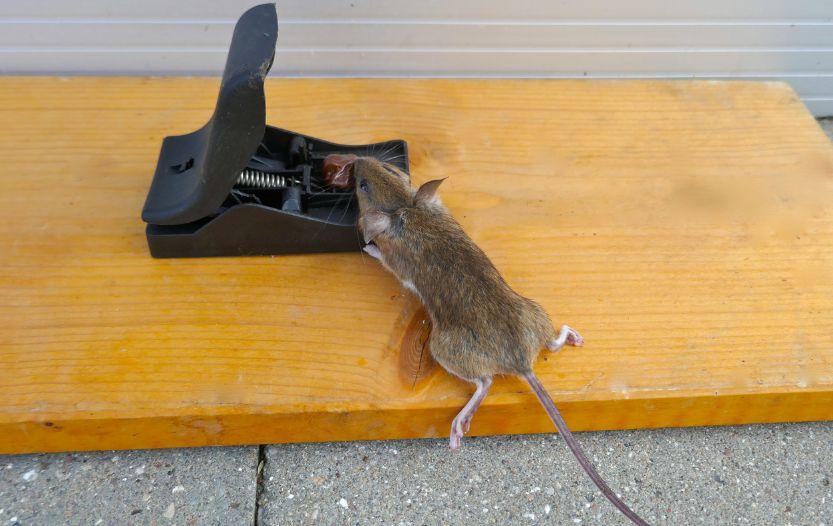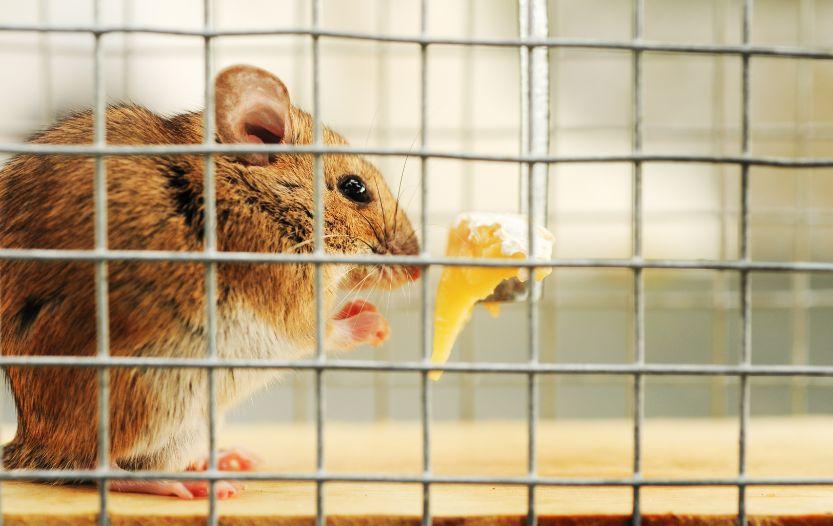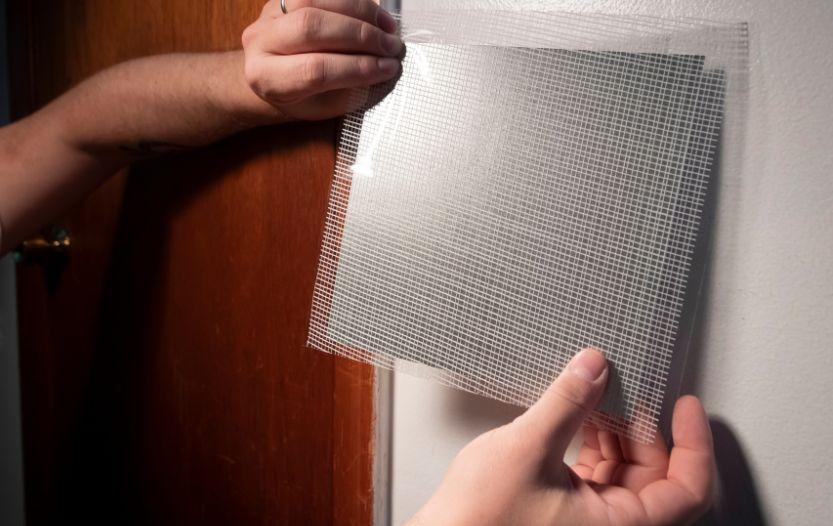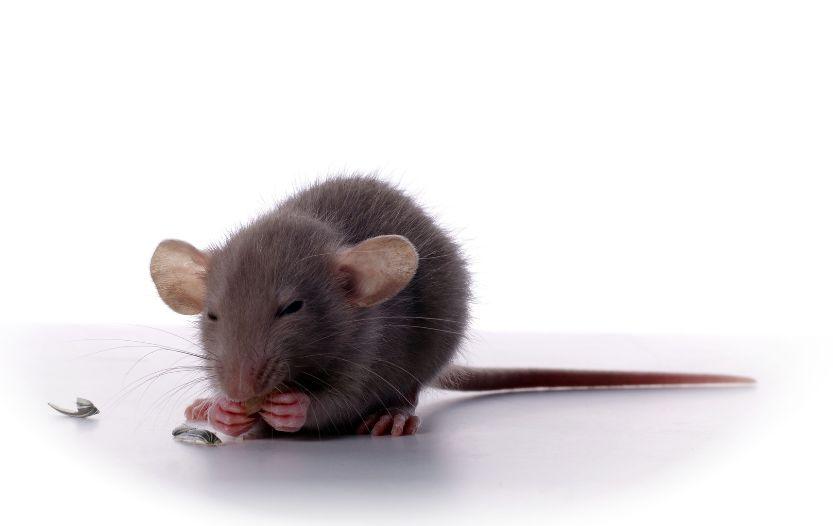Rats can be annoying – they eat a lot, contaminate things with urine and feces, and even spread disease. The worse part is they breed like crazy.
So, you might be wondering – do onions kill rats?
Onions contain thiosulphate, which is poisonous to rats when consumed in large amounts. If you use onions as a rat killer, make sure it’s out of reach from humans and other pets since it can also be toxic for them. Baiting or trapping the rats is a much more reliable and safe way to remove them from your home.
So, in this article, we’ll learn more about this – and hopefully, get rid of your rat problem.
Let’s dive right in.
How Do Onions Kill Rats?


Onions are effective at killing rats, but it’s not the quickest way to eliminate them. The process can take up to several days for a rat’s body to be drained of oxygen as onions aren’t easily digestible by rodents, which only exacerbates this issue.
Due to their low tolerance towards these ingredients, they become nauseous and display signs such as vomiting and diarrhea shortly after consumption.
Rats are notoriously smart and have been known to avoid anything they find suspicious. This means that if the rat knows what you’re trying to do, it might not fall for your trap.
However, using onions in combination with something else, such as bait or poisoned food, may be more effective than using onions alone. Placing some sliced onion in various areas that you know rats will frequent can help increase the chances of them consuming it and eventually dying due to its effects on human bodies as well.
When baiting your traps or using onions as part of an extermination process, it’s important to know that the effects won’t happen overnight.
Onions may not kill rats in one day but rather over a period of time, with repeated exposure causing dehydration and sickness, slowly weakening their bodies until they succumb to death, usually within 5-7 days after ingestion. Therefore patience is necessary when it comes to ending your rodent problem by using this natural remedy.
How Can You Get Rats to Eat Onions?


The smell of onions repels rats right off the bat, leaving you with a problem. If you cannot get the rats to eat the onion, you can’t kill them. So how do you get the rats to eat onions?
One way of getting rats to eat onions is by tricking them. Put other food items, such as fruits or vegetables, which they like better next to the onion so that they do not notice its smell and may end up eating it too without realizing what it was. You could also put cheese on top of the onion to attract the rats. The smell of cheese will mask the onion while still giving them access to its beneficial properties.
Additionally, if you make sure that there are plenty of other food sources in your area so they do not have any need to eat the onion in desperation, they may eventually become curious and do so regardless of its smell.
A second approach would be to create an environment that encourages their natural curiosity about food. Put pieces of onion in various spots around your house, either directly or indirectly (on the ground near their feeding bowl, for example).
Let them have a chance to explore it and find out what it is without feeling threatened – rats are natural foragers, and this is an ideal way to get them interested. You could try shredding the onion or mixing it in with something else – take advantage of their inquisitive nature!
For example, you can use a banana since bananas often have a strong smell. Another way is to use a spice like outlined in the video below:
Can You Use Onions as a Rat Repellent?
Rats are relentless, and they can find their way into even the most tightly secured home. Fortunately, there are some natural deterrents that help keep these pesky creatures away from your house – one of which is onions! Onions might seem like an unusual option for a rat repellent, but research has indicated it’s quite effective at doing just this.
Onions contain sulfur compounds which, when released into the air, break down and get absorbed by a rat’s sensitive nose. This scent is incredibly unpleasant for them and thus effectively deters their movements in your household areas.
You can use whole onions as a deterrent, but strategically chopping and placing them near areas that may be prone to rodent entry is even more helpful.
Although an onion-based rat repellent should work, it’s important for homeowners not to take this solution lightly. As previously mentioned, rats are persistent creatures who will ultimately find their way in if they’re determined enough.
Therefore, onions should be seen as part of an overall plan that is designed to deter rats from entering your home and prevent any damage caused by them or illnesses associated with their presence.
What is the Best Way to Kill a Rat?


Now, there’s always a chance that some of these rats will not eat the onions and die out, so you may have to try something else.
So, what’s the best way to exterminate rats?
Snap Traps


Snap traps have been around for a while and are often very cost-effective. Putting these snap traps in locations you suspect the rats may be hiding is a good idea.
A piece of advice here is to use rat bait. Often in movies, a piece of cheese is used as rat bait. However, I’ve seen that peanut butter performs the best.
Now, I know some people reading this article may not have peanut butter, so in that case, bacon, fruits, and cereal also work very well.
Bait Stations


Bait stations are a box with an entrance that allows rats to eat food with poison, then leave. This food can be peanut butter, fruits, cereal, those kinds of things – because rats love those. There’s also food that naturally has po
This is contained inside the station, so it’s much safer than leaving it outside somewhere where children and pets can be subject to the poison.
Below is, by far, the best rat poison I have found and used before.
PrimeEligable
Just One Bite II 16 oz. Rodent Rat Bait Cake Blocks – (Pack of 8)
- 3D leafy camo
- Widely used by many hunters
- Adjustable & universal design
- Comfortable
How to Prevent Any Further Rat Problem
So, you’ve used onions mixed with some bananas or the Just One Bite Bar – you got rid of your rat problem. Now, how do you keep it this way?
Fill Any Holes in Your House


If rats can find holes in your warm and cozy home, they’ll use it. Do a deep inspection of the exterior and interior of your house. These holes certainly don’t have to be big for rats to squeeze through them, so be very thorough.
Keep Some Traps
Now that you’ve made sure no rat can enter, you just have to make sure no other rat is left. Keep some traps in locations where you think a rat may go.
Cut Their Food Supply


Now that you’ve set some traps – cut all possible food supplies.
You can do this by covering your garbage, picking ripe fruit from trees, and not leaving any food or crumbs on the floor.
FAQs
Do Green Onions Kill Rats?
Green onions can kill rats but slower than regular onions. These onions contain fewer toxins needed to kill rats.
Can Onions Benefit Rats?
No, onions cannot benefit rats as they are poison to rats which will limit the amount of oxygen in their bodies.
If you own a pet rat, use things like fruits, cereal, and peanut butter.
Do Cooked Onions Kill Rats?
Cooked onions can kill rats, but they are slower than regular onions. This is because regular onions have the maximum amount of toxins, and by cooking them, you limit the amount of toxins these onions have.
Final Words
So, in this article, you learned that rats could get very sick from eating onions; they are repelled by onions, methods to get rid of rats, and how to keep them that way.
Some may argue that the way this kills rats is inhumane, so using something like the One Bite Bar may be better, but it’s up to you. You can choose to mask your onion’s smell with another food, and the rats eating this food will die within days.
Hopefully, you got some value from this article, and if you enjoyed this article, you should check out these:
Please consider following us on Facebook, Twitter, Pinterest, and Instagram. Also, consider sharing this content and subscribing to get 100+ free survival ebooks.


